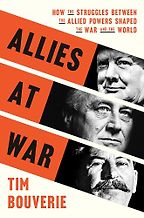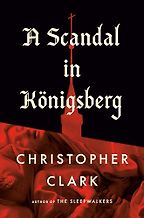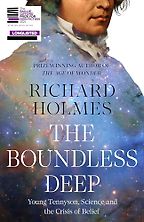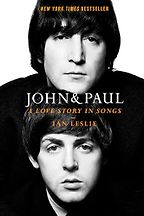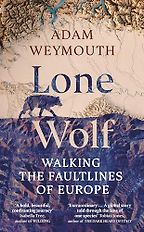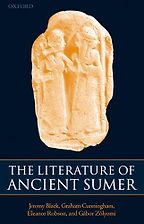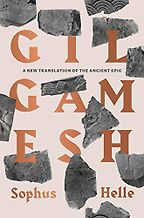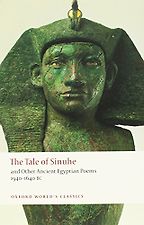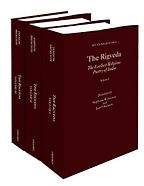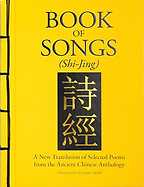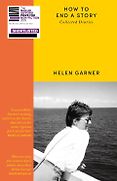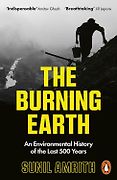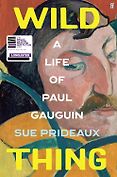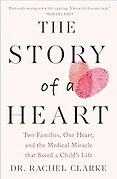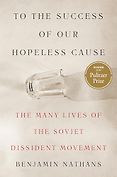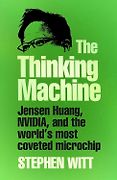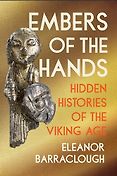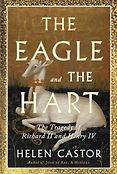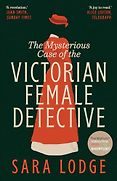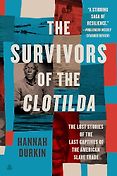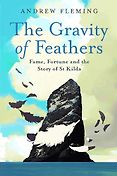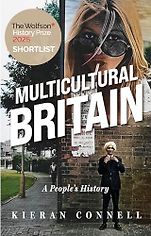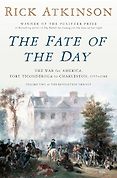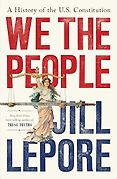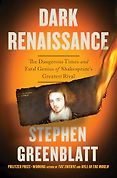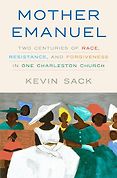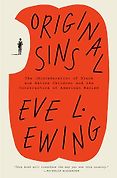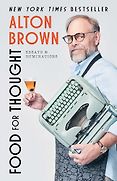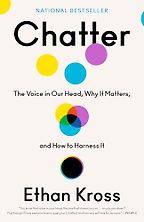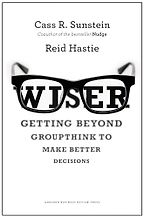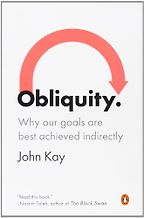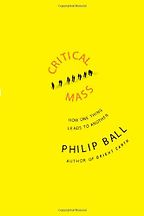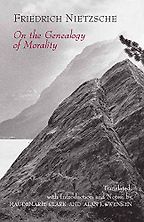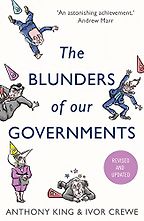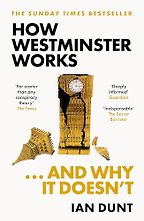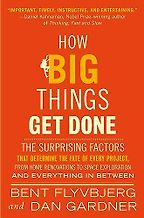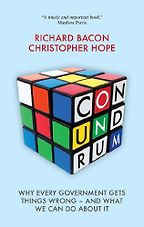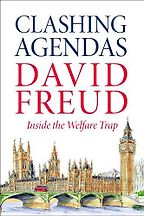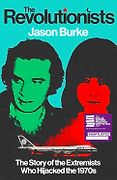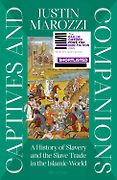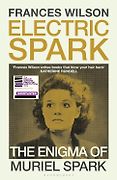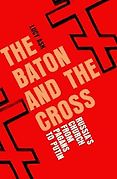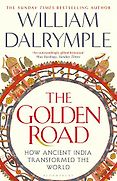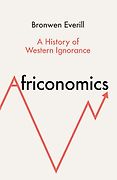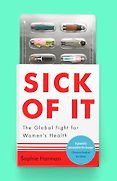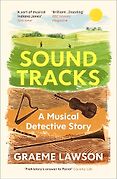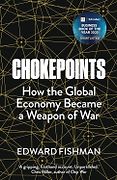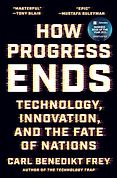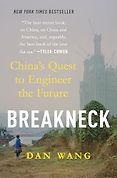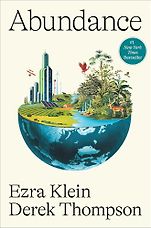Nonfiction Books
Last updated: February 08, 2026
Across our site, we have thousands of nonfiction book recommendations on a vast array of topics. Below, you'll find some general recommendations, useful if you're in the mood for nonfiction, want to read a really, really good book, but don't mind what it's about.
There are vast numbers of new books published every year, which makes choosing some of the best ones seem somewhat random and subjective. Fortunately, there are a number of nonfiction book prizes. Judges scour hundreds of books—many of them lengthy tomes—to find the best books of the year.
History books | True Crime Books | Best Nonfiction of 2024 | Best Biographies | Memoirs & Autobiography | Short Nonfiction | Nonfiction Series| Science books | Philosophy books | Psychology books | Art History books | Economics books | Business Books | Religion books | Critical Thinking Books | Neuroscience Books | Conspiracy Theory Books | Historical Nonfiction
-

1
Allies at War: The Politics of Defeating Hitler
by Tim Bouverie -

2
A Scandal in Königsberg
by Christopher Clark -

3
The Boundless Deep: Young Tennyson, Science and the Crisis of Belief
by Richard Holmes -

4
John and Paul: A Love Story in Songs
by Ian Leslie -

5
Lone Wolf: Walking the Faultlines of Europe
by Adam Weymouth
The Best Nonfiction Books: The 2026 Duff Cooper Prize, recommended by Andrew Holgate
The Best Nonfiction Books: The 2026 Duff Cooper Prize, recommended by Andrew Holgate
Now in its 70th year, the Duff Cooper Prize is awarded annually for an outstanding work of nonfiction that combines originality, rigour and a strong narrative drive—the kind of book that “general readers of serious nonfiction crave,” explains Andrew Holgate, former literary editor of the Sunday Times and one of this year’s judges. He talks us through the brilliant books that made the 2026 shortlist, from a fresh and revealing take on the defeat of Hitler to the politics of wolves in contemporary Europe.
-

1
The Literature of Ancient Sumer
by Jeremy Black et al. -

2
The Epic of Gilgamesh
by Anonymous & Sophus Helle (translator) -

3
The Tale of Sinuhe and other Ancient Egyptian Poems
by Anonymous & translated by Richard Parkinson -

4
The Rigveda
by Anonymous & translated by Stephanie Jamison and Joel Brereton -

5
Book of Songs (Shi-Jing)
by Anonymous & translated by James Trapp
The World’s Oldest Books, recommended by Tuva Kahrs
The World’s Oldest Books, recommended by Tuva Kahrs
Since cuneiform symbols were first used on clay tablets 5,000 years ago, humans have been recording not only information, but also stories. Some of the oldest writings were works of literature that speak to us across the millennia and continue to be published as books today. Five Books contributing editor Tuva Kahrs brings you five of the oldest books that have made it all the way from clay tablet or papyrus scroll to printed edition or e-book, influencing countless generations of readers and writers.
-

1
How to End a Story: Collected Diaries
by Helen Garner -

2
The Burning Earth: An Environmental History of the Last 500 Years
by Sunil Amrith -

3
Wild Thing: A Life of Paul Gauguin
by Sue Prideaux -

4
The Story of a Heart
by Rachel Clarke -

5
To the Success of Our Hopeless Cause: The Many Lives of the Soviet Dissident Movement
by Benjamin Nathans -

6
The Thinking Machine: Jensen Huang, Nvidia, and the World’s Most Coveted Microchip
by Stephen Witt
Award-Winning Nonfiction Books of 2025, recommended by Sophie Roell
Award-Winning Nonfiction Books of 2025, recommended by Sophie Roell
It’s a golden age for nonfiction, with books on a range of important topics written in an accessible way. As 2025 draws to a close, Five Books editor Sophie Roell takes us through some of the books that won prestigious nonfiction book prizes this year, and what they can tell us about the world we live in.
-
1
Embers of the Hands: Hidden Histories of the Viking Age
by Eleanor Barraclough -

2
The Eagle and the Hart: The Tragedy of Richard II and Henry IV
by Helen Castor -

3
The Mysterious Case of the Victorian Female Detective
by Sara Lodge -

4
Survivors: the Lost Stories of the Last Captives of the Atlantic Slave Trade
by Hannah Durkin -

5
The Gravity of Feathers: Fame, Fortune and the Story of St Kilda
by Andrew Fleming -

6
Multicultural Britain: A People's History
by Kieran Connell
The Best History Books of 2025: the Wolfson History Prize Shortlist, recommended by Helen King
The Best History Books of 2025: the Wolfson History Prize Shortlist, recommended by Helen King
The Wolfson History Prize is awarded annually for historical writing that is both brilliantly researched and a great read. Professor Helen King, one of this year’s judges, talks us through the 2025 shortlist and explains why each book stood out.
-

1
The Fate of the Day: The War for America, Fort Ticonderoga to Charleston, 1777-1780
by Rick Atkinson -

2
We the People: A History of the U.S. Constitution
by Jill Lepore -

3
Dark Renaissance: The Dangerous Times and Fatal Genius of Shakespeare's Greatest Rival
by Stephen Greenblatt -

4
Mother Emanuel: Two Centuries of Race, Resistance, and Forgiveness in One Charleston Church
by Kevin Sack -

5
Original Sins: The (Mis)education of Black and Native Children and the Construction of American Racism
by Eve L. Ewing -

6
Food for Thought: Essays and Ruminations
by Alton Brown
The Best History & Nonfiction Audiobooks of 2025, recommended by AudioFile Editors
The Best History & Nonfiction Audiobooks of 2025, recommended by AudioFile Editors
Editors at AudioFile magazine, who reviewed more than 2,000 books in 2025, pick out their favourites in the ‘history and nonfiction’ category—from the American struggle for independence to the ruminations of a food celebrity.
-

1
Chatter: The Voice in Our Head, Why It Matters, and How to Harness It
by Ethan Kross -

2
Wiser: Getting Beyond Groupthink to Make Groups Smarter
by Cass Sunstein & Reid Hastie -

3
Obliquity: Why Our Goals Are Best Achieved Indirectly
by John Kay -

4
Critical Mass
by Philip Ball -

5
On the Genealogy of Morality
by Friedrich Nietzsche, introduction and notes by Maudemarie Clark & Alan Swensen
The best books on The Psychology of Human Behaviour, recommended by Michael Hallsworth
The best books on The Psychology of Human Behaviour, recommended by Michael Hallsworth
While we may not always act as we should, research into human behaviour has taught us enough to improve things both individually and as a society, says behavioural scientist Michael Hallsworth, author of The Hypocrisy Trap. He talks us through his favourite books on human behaviour, from managing the voice in our head to avoiding the dangers of groupthink.
-

1
The Blunders of Our Governments
by Anthony King & Ivor Crewe -

2
How Westminster Works . . . and Why It Doesn't
by Ian Dunt -

3
How Big Things Get Done: The Surprising Factors That Determine the Fate of Every Project, from Home Renovations to Space Exploration and Everything In Between
by Bent Flyvbjerg & Dan Gardner -

4
Conundrum: Why Every Government Gets Things Wrong and What We Can Do About it
by Christopher Hope & Richard Bacon -

5
Clashing Agendas: Inside the Welfare Trap
by David Freud
The best books on Big Projects, recommended by Jonathan Simcock
The best books on Big Projects, recommended by Jonathan Simcock
In order to have fewer failed projects, we need to address some of the deep structural incentives in the system, argues Jonathan Simcock, who spent 16 years leading and advising on large UK government projects. He talks us through books to read to understand more about big projects and why they go wrong, and how to do better in future.
-

1
The Revolutionists: The Story of the Extremists Who Hijacked the 1970s
by Jason Burke -

2
How to End a Story: Collected Diaries
by Helen Garner -

3
The Boundless Deep: Young Tennyson, Science and the Crisis of Belief
by Richard Holmes -

4
Captives and Companions: A History of Slavery and the Slave Trade in the Islamic World
by Justin Marozzi -

5
Lone Wolf: Walking the Faultlines of Europe
by Adam Weymouth -

6
Electric Spark: The Enigma of Muriel Spark
by Frances Wilson
The Best Nonfiction Books of 2025: The Baillie Gifford Prize Shortlist, recommended by Robbie Millen
The Best Nonfiction Books of 2025: The Baillie Gifford Prize Shortlist, recommended by Robbie Millen
From the terrorists who came up with the idea of hijacking planes to get attention to a biography of the Scottish novelist Muriel Spark, the books in the running for this year’s Baillie Gifford Prize, as always, display a wonderful breadth. Robbie Millen, literary editor of the Times and chair of the 2025 judging panel, talks us through the shortlist of the UK’s most prestigious nonfiction book prize.
-

1
The Burning Earth: An Environmental History of the Last 500 Years
by Sunil Amrith -

2
The Baton and the Cross: Russia's Church from Pagans to Putin
by Lucy Ash -

3
The Golden Road
by William Dalrymple -

4
Africonomics: A History of Western Ignorance
by Bronwen Everill -

5
Sick of It: The Global Fight for Women's Health
by Sophie Harman -

6
Sound Tracks: A Musical Detective Story
by Graeme Lawson
The Best Nonfiction Books: The 2025 British Academy Book Prize, recommended by Rebecca Earle
The Best Nonfiction Books: The 2025 British Academy Book Prize, recommended by Rebecca Earle
To be shortlisted for the annual British Academy Book Prize, books have to be both rigorously researched and highly readable. Historian Rebecca Earle, chair of the 2025 judging panel, talks us through the books that made this year’s shortlist, from an environmental history that opens with Genghis Khan and the Mongol expansion to a ‘musical detective story’ that investigates the sounds made by our ancestors down the millennia.
-

1
House of Huawei: The Secret History of China's Most Powerful Company
by Eva Dou -

2
Chokepoints: American Power in the Age of Economic Warfare
by Edward Fishman -

3
How Progress Ends: Technology, Innovation, and the Fate of Nations
by Carl Benedikt Frey -

4
Abundance: How We Build a Better Future
by Ezra Klein and Derek Thompson -

5
Breakneck: China's Quest to Engineer the Future
by Dan Wang -

6
The Thinking Machine: Jensen Huang, Nvidia, and the World’s Most Coveted Microchip
by Stephen Witt
The Best Business Books of 2025: the Financial Times Business Book of the Year Award, recommended by Andrew Hill
The Best Business Books of 2025: the Financial Times Business Book of the Year Award, recommended by Andrew Hill
It’s been another big year for technology and AI, but books on geopolitics and global political rivalries are front and centre on the shortlist of the 2025 Financial Times Business Book of the Year Award. FT journalist Andrew Hill, the prize’s organizer, talks us through the six books that made the cut—from the enigmatic founders of multi-billion- and trillion-dollar businesses to the challenges governments face in achieving growth and prosperity.
